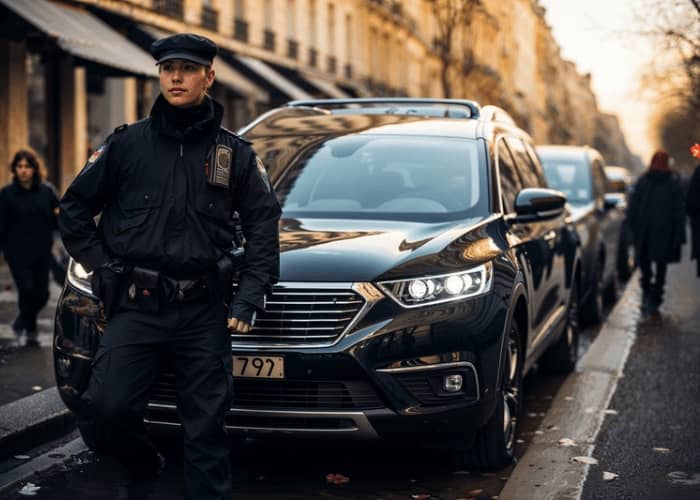Paris is preparing to become a battleground for urban sustainability. In a city known for its history, culture and beauty, the latest chapter is being written with a decidedly green hue. Mayor Anne Hidalgo has presented a bold plan, which I would summarize as follows: triple parking rates for SUVs in the city. This measure, described as an act of "social justice", aims to push heavy and polluting vehicles off the streets of the City of Lights.
Green revolution: the fight against SUVs
The initiative of the French capital is part of a broader framework of environmental policies. Paris' move to target SUVs is not only a symbol of ecological commitment, but also a concrete step towards reducing air pollution, a problem that plagues many modern metropolises.
The “approach” stages have the form of “Veil plan“, the project to make the whole city cycle-friendly, even through the painful giving up scooters, a cause more of chaos than of fluidity in traffic. Today, SUVs, known for their high fuel consumption and higher emissions, have become the target of this new policy.
City referendum: the voice of Parisians
The 4 February, the residents of Paris will be asked to express their opinion in a referendum. They will decide whether or not to approve this specific parking fee. A key element of this approach is democratic participation: letting citizens themselves choose the future of mobility in their city.
What exactly are we talking about? If the referendum passes, the cost of on-street parking for an SUV or 4x4 car will rise to €18 per hour in central Paris and €12 in other areas of the city. These rates will apply to vehicles weighing more than 1,6 tonnes with a combustion engine or hybrid, and over 2 tonnes for electric vehicles. The fare increase is expected to generate significant revenue for the city, estimated in approximately €35 million.

An ambitious agenda for climate and air quality
The mayor's agenda Anne Hidalgo is clear: take action on the climate crisis, road safety and air quality. Protecting the 500.000 Parisians who live near the Périphérique, the motorway ring that surrounds the city, is a priority. These people suffer the direct consequences of the pollution caused by large vehicles entering the city (pollution that causes 9 million victims per year).
David Belliard, deputy mayor of Paris for the Green party, highlights another crucial aspect of this measure: a form of social redistribution. SUVs, which cost significantly more than a standard car, are typically purchased by people with higher incomes. Therefore, this measure would be directed towards the richest, to finance the transformation of public space in response to the climate crisis.
“Anti-SUV” plan: strong message also to car manufacturers
The Paris plan aims to send a strong signal to SUV manufacturers, whose sales have increased in recent years. Paris, with a 60% increase in the number of SUVs in the last four years, is showing that the future of urban mobility requires radical change.
It's not just Paris that is moving in this direction. Other French cities, such as Lyon, are also planning to introduce higher parking fees for larger vehicles starting next year.
Obviously not everyone welcomes this initiative. The French motorists' association, which counts as something like almost 40 million members, denounced what he considers to be an unjustified restriction and limitation of freedoms.
What do you think?
Paris is moving towards a referendum that could redefine urban mobility, and the world is watching with interest. The future of Paris, and many other cities, lies in a delicate balance between urban development, environmental sustainability and social justice.
The French capital could soon become a model for more sustainable and responsible urban mobility. À la guerre comme à la guerre.


